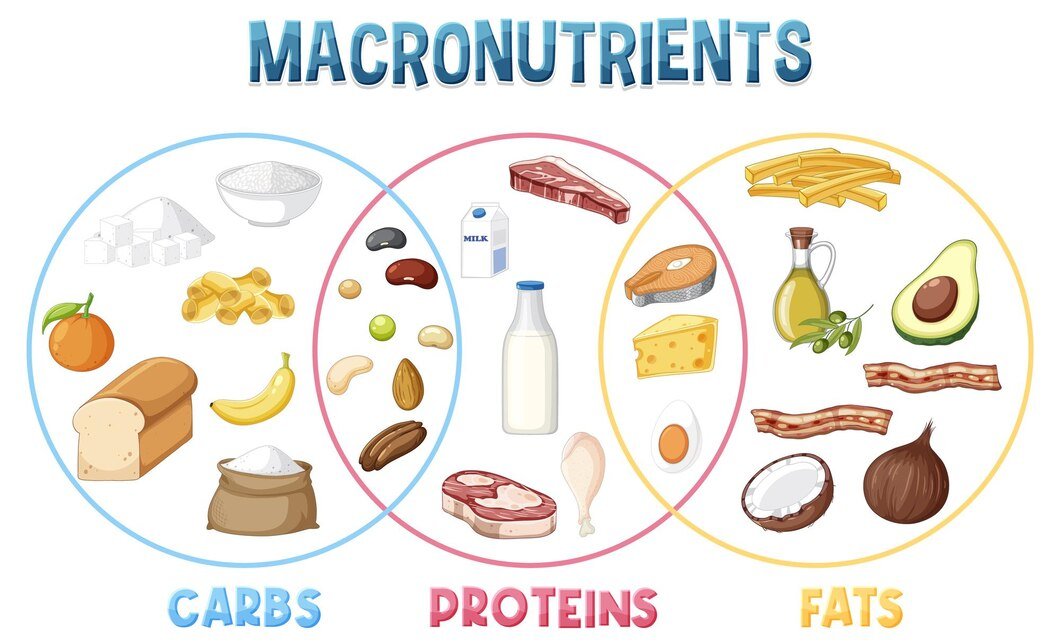Macronutrients
Introduction to Macronutrients
Macronutrients are the essential components of our diet that provide the energy and building blocks necessary for optimal health and function. Understanding the role of macronutrients in our diet is crucial for maintaining overall well-being.
Types of Macronutrients
- Carbohydrates: These are the body’s primary source of energy, found in foods like grains, fruits, and vegetables.
- Proteins: Essential for building and repairing tissues, proteins are abundant in sources like meat, fish, eggs, and legumes.
- Fats: Fats play a vital role in nutrient absorption, insulation, and hormone production, and can be found in oils, nuts, and avocados.
Functions of Macronutrients
- Carbohydrates: They are broken down into glucose, providing energy for the body’s cells and brain.
- Proteins: They are the building blocks of muscles, organs, and tissues, aiding in repair and growth.
- Fats: They help absorb fat-soluble vitamins, provide insulation, and serve as a long-term energy reserve.
Recommended Macronutrient Intake
The recommended intake of macronutrients varies based on factors such as age, gender, activity level, and overall health. However, a balanced diet typically consists of a certain percentage of carbohydrates, proteins, and fats.
Impact of Macronutrients on Health
A well-balanced diet rich in macronutrients is essential for preventing chronic diseases such as obesity, diabetes, and heart disease. However, excessive intake or deficiencies in certain macronutrients can also have adverse effects on health.
Sources of Macronutrients
Natural food sources are the best way to obtain macronutrients, as they often contain other essential vitamins, minerals, and phytonutrients. Whole grains, lean proteins, and healthy fats should be prioritized in the diet.
Macronutrients and Weight Management
The distribution of macronutrients in the diet can influence metabolism, satiety, and overall calorie intake, making it a crucial factor in weight management strategies.
Myths and Misconceptions About Macronutrients
There are several misconceptions surrounding macronutrients, such as the belief that all carbohydrates are unhealthy or that fats should be avoided. Understanding the science behind macronutrients can help dispel these myths.
Tips for Incorporating Macronutrients Into Your Diet
Meal planning and preparation are key to ensuring a balanced intake of macronutrients. Including a variety of foods from each macronutrient group can help meet nutritional needs while satisfying taste preferences.
Understanding Macronutrient Labels
Reading food labels can help consumers make informed choices about their diet by providing information on the macronutrient content of packaged foods.
Special Considerations for Athletes and Active Individuals
Athletes and individuals with high activity levels may have increased macronutrient needs, particularly in protein and carbohydrates, to support performance and recovery.
The Role of Macronutrients in Specific Diets
Various dietary approaches, such as low-carb, high-protein, or fat-focused diets, emphasize different macronutrient ratios to achieve specific health or weight loss goals.
The Future of Macronutrient Research
Ongoing research into macronutrients continues to uncover new insights into their role in health and disease, which may lead to updates in dietary recommendations and guidelines.
Conclusion
Macronutrients are the foundation of a healthy diet, providing the energy and nutrients necessary for optimal function and well-being. By understanding the role of carbohydrates, proteins, and fats and incorporating them into a balanced diet, individuals can support their overall health and longevity.
